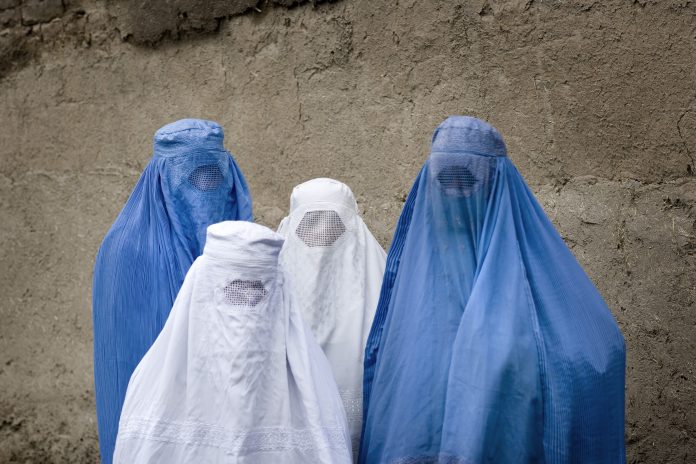Last month, the Taliban introduced a new, consolidated code of religious laws that has left Afghan women devastated, with many now seeking ways to escape the country. This move also holds significant consequences for the Taliban’s efforts to gain international legitimacy and build diplomatic relations. Three years after America’s withdrawal, Afghanistan’s situation appears more dire than ever, writes the Economist.
Even before this announcement in late August, Afghan women were already banned from secondary schools, universities, parks, and women-only spaces like beauty salons. Most were prohibited from working in various professions. Now, they face additional restrictions: women are forbidden from raising their voices or reciting the Koran in public, are banned from looking at any man outside their immediate family, and must fully cover their faces.
Nasiba (not her real name), a 28-year-old midwife from Badghis in north-western Afghanistan, says she feels a profound “sense of hopelessness, loneliness” after three years under Taliban rule. When she leaves her house, she does so in fear, “shaking that someone might say something or stop me.” In response to the latest laws, some women have drastically reduced the amount of time they spend outside, while others never venture out alone. Amina, a widow in Kabul, locks her children inside her home. Her daughter and son sometimes eat only once a day, if at all: “If there’s food, they eat; if not, they wait.”
Pivotal moment described as ‘gender apartheid’
Richard Bennett, the UN special rapporteur on human rights in Afghanistan, describes the new religious code as a “pivotal moment.” Bennett, who has been barred from Afghanistan by the Taliban, is calling for “gender apartheid” to be recognized as a crime against humanity. Activists are urging for the Taliban to be tried at the International Criminal Court, as Afghanistan is a signatory to the Rome Statute. However, this seems unlikely, especially as global attention is focused on conflicts in Ukraine and Gaza.
Suhail Shaheen, the Taliban’s nominee for permanent representative to the United Nations, claims that the new code was designed to “limit” the morality police, who have become more visible in the country. He insists that the ban on women speaking publicly has been “misinterpreted,” stating that it only applies to women singing at large gatherings of men. He also claims that women are still allowed to study midwifery or attend religious schools and that thousands of licenses have been issued for female interpreters.
These reassurances mean little to most women. Nasiba has started considering fleeing the country, driven by concerns for her 10-year-old daughter’s future—and for her 5-year-old son, who has begun to admire the Taliban. “He sees [the Taliban] at the shopping center, sees their rangers, and wants to take a photo…maybe he’ll become a Talib,” she says with a bitter laugh. “When there’s no education—no computer classes, no English, just religious studies—what else is he going to become?”


